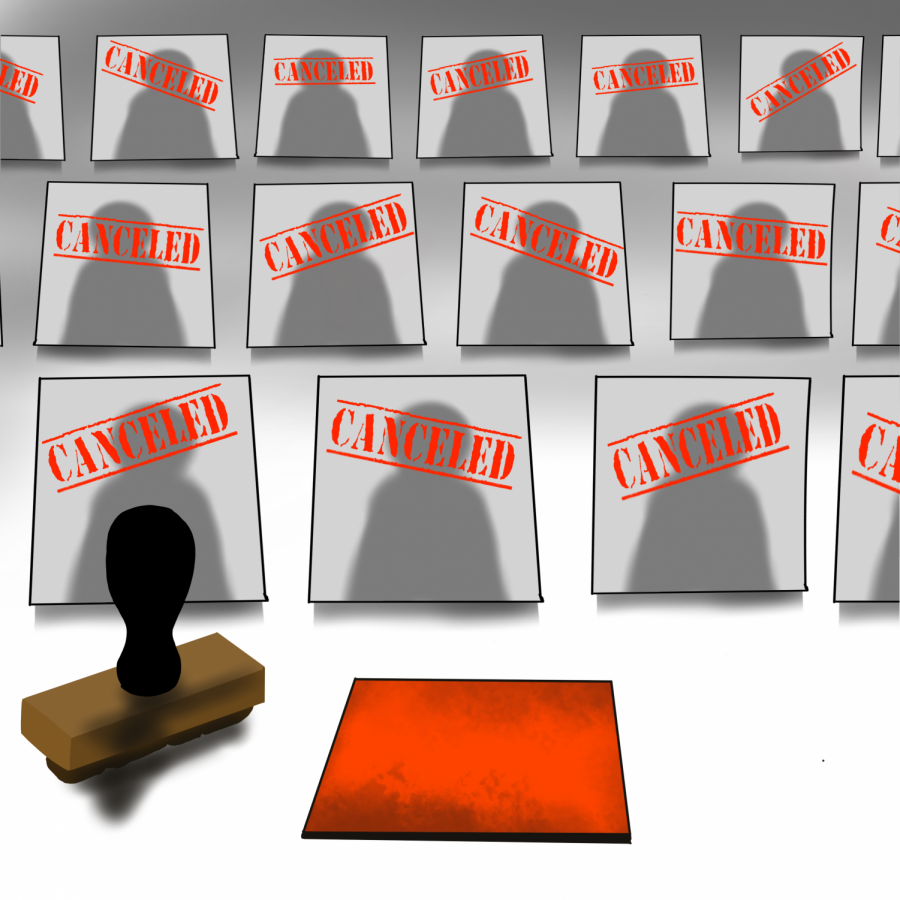Cancel culture won’t solve our societal problems
November 8, 2019
Twitter tries to define itself in the modern world as a paragon of modern culture and a leading force of societal “woke”-ness. However, the flaws inherent in such a medium bring themselves to the forefront as we see a line of people — of varying degrees of agreeableness, merit and acceptability — have their lives turned upside down through “cancel culture.” While this social movement is not new (see Justine Sacco’s 2013 attempt at wry humor leading to overnight unemployment), it has certainly seen a growing new wave in popular culture, especially on Twitter.
Former U.S. President Barack Obama has stayed notably quiet since his last days in office nearly three years ago, so it’s worth taking note when his voice breaks out of the buzz. Speaking at an event for his namesake Foundation, Obama chose to weigh in on this cancel culture that most everyone seems to be aware of. He says, “The world is messy; there are ambiguities. People who do really good stuff have flaws. People who you are fighting may love their kids, and share certain things with you.”
This point is one to note. When piling on to the latest person’s “egregious” actions — however egregious they truly are — it becomes impossible to consider all aspects of the situation or person at hand. Lines and facts blur as most of these discussions take place without the supplement of all situational information. Take the 2015 story of a Jennifer Connell suing her nephew because he hugged her unexpectedly, causing her to fall and break her wrist. The Internet piled onto the story, railing the #auntfromhell for blaming an innocent child. These negative comments didn’t stop until Connell appeared on television (with the nephew in question) to say that, in order to receive an insurance payout for the injury, someone had to be responsible. She added that the boy’s family would never have been responsible for the cost of her three surgeries, but that the lawsuit was taken on so that her insurance company’s original offer of $1 could be effectively appealed.
The nuance in these situations is lost in the perpetual conversation about the deplorable state of the world. “Can you believe people like this still exist?” is the common theme of discussions like this, talking in perpetual circles of outrage. The number of effectively useless tweets and Instagram stories in response to one controversy or another fully outweighs any productive discussion that could come out of the situation.
Instead of searching for all of the information necessary to draw accurate conclusions and propose reasonable improvements, those discussions are all too often caught in the schadenfreude of bringing down the perpetrators. Current targets of cancellation would otherwise be anonymous and unremarkable, but soon that statement or action is the one thing that they are known for. Purposely digging through one’s problematic internet history in order to exploit and attack them is all too easy — it allows for dissociation and depersonalization. Obama, while speaking to a group of young people, added that “If all you’re doing is casting stones, you’re probably not going to get that far.”
The former president’s point gets to the heart of cancel culture — what is the point of this repeated denunciation? Despite the canceling of the Baraboo High School students who were seen throwing up a Nazi salute, for example, ideas of supremacy and marginalization still dominate many parts of the country. Making examples of otherwise un-notable people only serves to destroy otherwise ineffective voices. And for what?
I’m not making the argument to condone inappropriate behaviors that you see personally, but I am saying you should not immediately attempt to “cancel.” Work with people and help them to understand that what they said or did is not conducive to the society that either you or they want. The only way that one can individually have an impact is by treating people you know with not only understanding but also with a desire for them to become better.
Do not exile them. Do make known to them that the thing that they said or did is not acceptable to you. Joining a discussion, especially online, where the affected party is not one known personally only creates opportunities for your voice to join in a chorus of like-minded ones. Our society desperately needs real, long-lasting change, so save your voice for that one friend who needs to hear it, where you can have the impact of leading society to the one that you want to see.





















